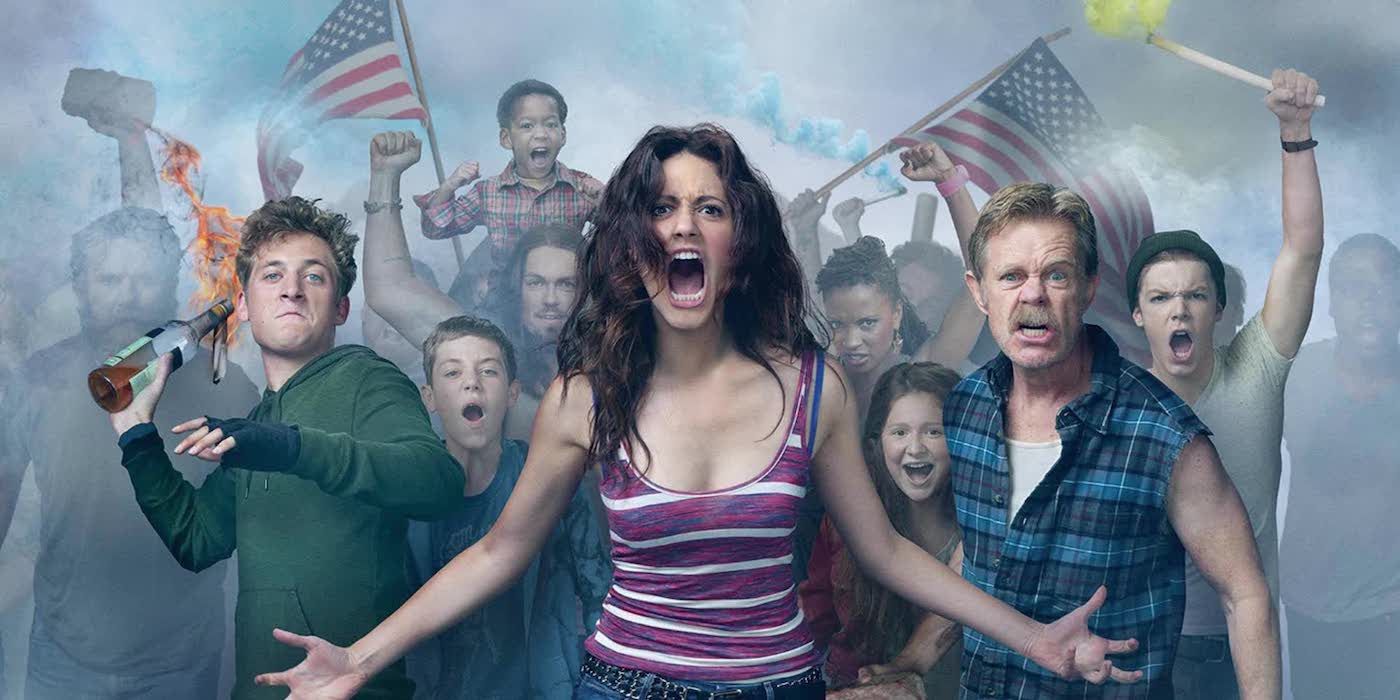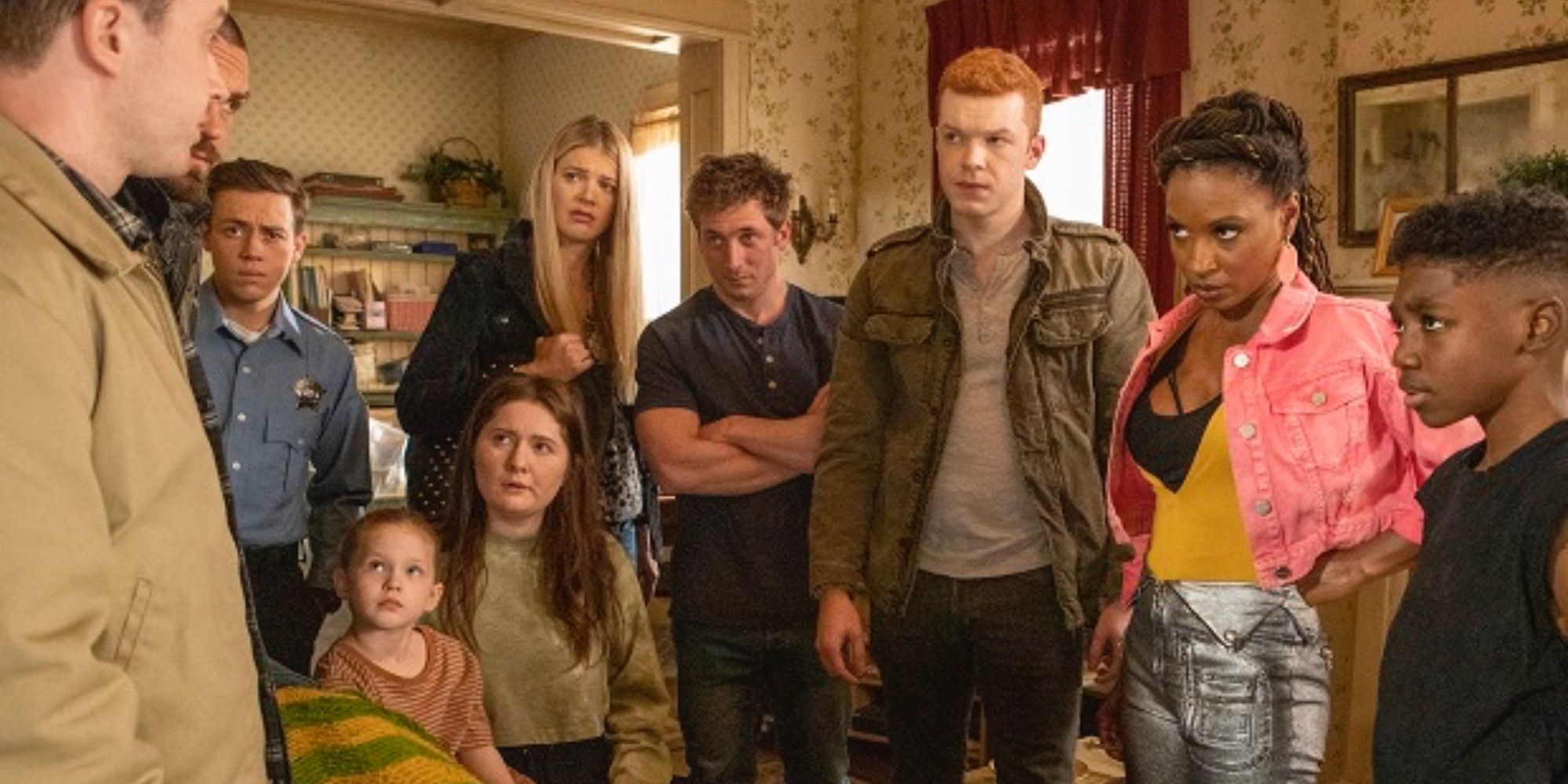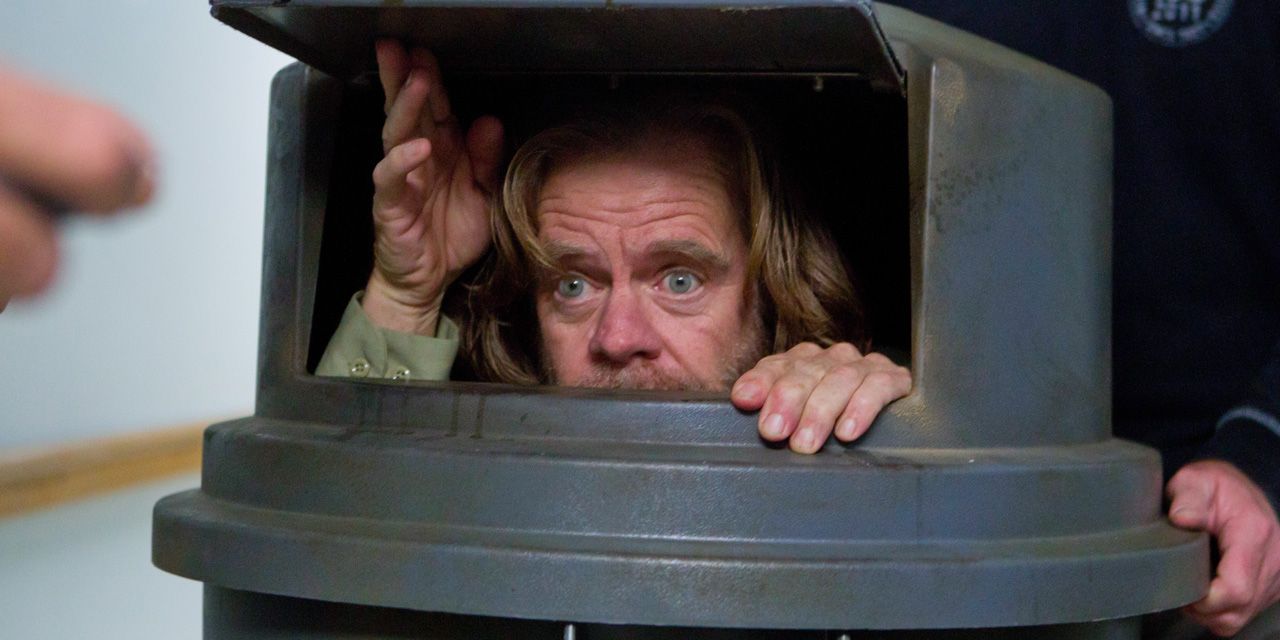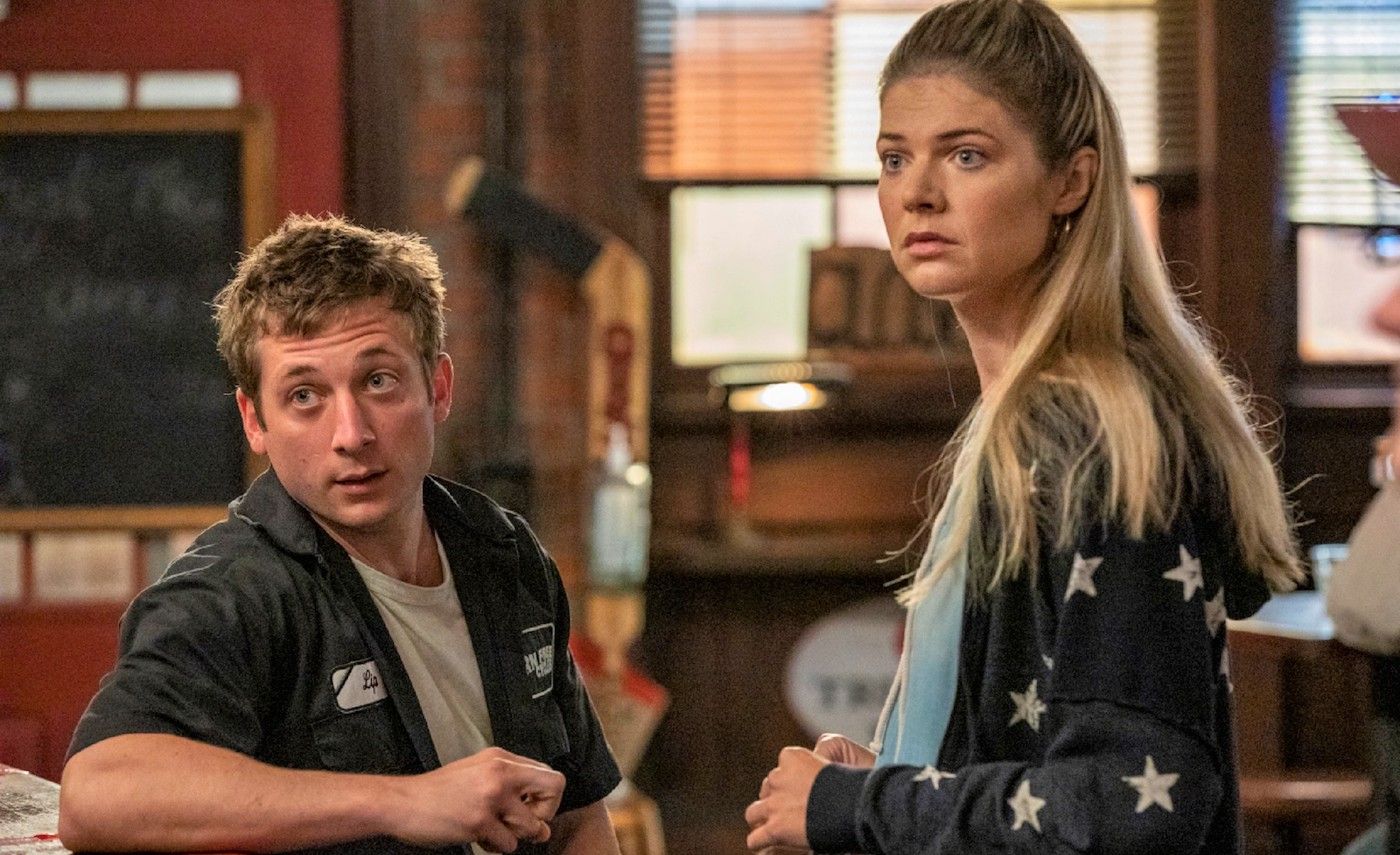Growing up firmly in the ranks of the “working poor,” I had not seen such a realistic example of the working poor on TV since the original installment of Roseanne (and maybe Good Times) until I saw Shameless. The Gallagher family felt refreshingly real. Not only does this show portray the lighter and darker sides of not having enough money, but it highlights other less-mentioned hardships that the cycle of poverty can lead to such as alcohol and substance abuse and addiction, under or undiagnosed mental illness, lack of opportunities for advancement, and how class warfare can ravage communities.
Yet, for all the show does right, there is still some wrong. Let's start with what it got right.
Missing Work Isn't An Option
At several points within the show, almost every member of the family has a job, and yet that is not enough. There is never quite enough. They work harder than anyone for half as much. They have their scant squirrel fund but even then, 10-year-old Debbie (Emma Kenney) has to run an illegal daycare out of their home while Fiona (Emmy Rossum) sleeps to work her night job just to put in a few dollars; "few" being the operative word. Some fans seem to be mystified by a Season 8 plot where Debbie amputates and self-cauterizes her toes after a welding accident so that she can get back to work without excessive hospital bills. It may seem rash, but unfortunately, Debbie performing minor surgery on herself to avoid missing work isn't actually that unfeasible. While no one bats an eye at people working multiple jobs to support a family, people of means often ask, as Jimmy/Steve (Justin Chatwin) does, why people who speak English would take such demeaning jobs on purpose; or why people stay at a job where they are being sexually harassed, such as when Fiona needs to keep her supermarket job for the discounts to feed her family. Of course, Fiona decides to act against her pervert-boss, but the short answer is: it isn’t that simple when there are mouths to feed. Poor people can’t just quit their jobs or miss work (even if you've just lost some toes).
The Point-of-View of Poverty
Poverty teaches people that the system is fixed against them. They trust little except themselves and sometimes develop wily ways to alleviate their crumbling existence. They are often bereft of the options of others and feel a manufactured sense of shame for being without. Shameless is the perfect example of this point-of-view on television.
Fiona and Lip (Jeremy Allen White) are also the perfect metaphors for what happens when poor people are smart, talented, or have potential—their opportunities are still limited, and they either sabotage what little success they can skim off the top because they don’t feel worthy, or feel the call of other responsibilities stronger than the desire to succeed. One of my favorite scenes of the entire series is the last one of the first season where, in a very Joycean moment reminiscent of “Eveline,” Fiona goes to the train station to run away with her boyfriend, Jimmy/Steve, but just can’t. She knows that without her, her siblings would starve to death or lose their home. She also likely felt unworthy of the “better life” he promised. Lip descends into alcoholism while in college and gives up legitimate jobs to try some get-rich-quick schemes, a telltale sign of growing up with financial insecurity. The instant gratification of money now outweighs any logic of accruing money long-term. Why work hard to get more later instead of grabbing some fast cash for the here and now?
Gentrification
In the case of Shameless, gentrification isn’t just Mickey’s (Noel Fisher) humorous lamentations of how he doesn’t know how to live fancy and is bewildered by craft beer, but it is presented as a metaphor for how society views the problems they created, i.e. poverty. Shameless uses the topic of gentrification to make a brutally accurate cocktail of what many Americans grapple with daily in their own lives. In a pathetic attempt to shine up the dirt of poverty by making the South Side be more attractive, "moneyed lesbians," as Frank calls them, buy and flip the "cheap" properties in downtrodden neighborhoods and establish cafés on every other corner, ignoring what the people there really need: jobs, education, access to affordable healthcare and housing. In one episode in the eleventh and final season, Lip and Tami (Kate Milner) attempt to give their rental home some curb appeal to find their front yard littered with trash. They find out that their neighbors did it out of fear that it would drive up rent prices for everyone if they thought all the houses were that nice. Gentrification feels like the beginning of the end for families like the Gallaghers who are now competing with not only hipsters for housing and alcohol, but their neighbors as well, and can't catch a break. It furthers the us vs. them mentality and feeds into the aforementioned sense of not trusting the political system as historically, the government has done the same to communities in need: offering a Band-Aid for a gaping wound.
And here's what it got wrong..
Frank Fallacies
Just because they are poor, doesn’t mean they are dumb. The show addresses this a lot but then follows up with Frank (William H. Macy). There is a lot with Frank that makes sense. A lot of working poor struggle with alcohol or substance abuse the same as they struggle with money. There was so much potential with playing Frank straight, but the show did not go that way. Of course, they want to feature Macy’s acting prowess, but there are a lot of ways that Frank’s arc just doesn’t make sense as a result. Which glitch in the matrix would allow Frank Gallagher, a poor, uninsured, unrecovered alcoholic a new liver? How does he have money for drinking at a bar? What bar would allow him to drink there on a running tab? There isn’t a bar in Chicago's South Side, or anywhere else in 21st century America, that would allow anyone, much less Frank Gallagher, a running tab.
Frank never gets caught for any of his harebrained schemes. For the first couple of seasons, it is kind of a funny running gag, but then it began to fail as a joke. For a show that accurately paints a picture of the poverty cycle, this doesn’t make sense. Ian (Cameron Monaghan) and Carl (Ethan Cutkosky) go to juvenile detention facilities, and Fiona even does a brief stint in prison before Frank does. Prisons are brimming with the poor. The same spirit of redemption that is held up for the rich who have committed a crime is nonexistent for the underprivileged. The disenfranchised are more likely to wait years in jail before being tried, pleading guilty to their crimes whether they committed them or not, then getting dealt more bad hands when or if they are released. The show does touch on this with Fiona when she is released, but then we are presented with Frank. Everyone on the South Side knows Frank: hospital administrators, sex workers, disgruntled bartenders, disgruntled drug dealers, and the police; all of whom are willing to bust Frank at any moment. He gets sloppier in his pursuits and even ends up with dementia at the end, and still doesn't get caught. It just doesn’t add up.
The Problem with Tami
As someone that grew up poor and dated someone rich in adulthood, I can identify with those lingering feelings of being an outlier; of feeling like white trash because I didn’t know what Charcuterie was and that you can actually eat kale, it isn’t just a garnish. Perhaps that is what Shameless is trying to do with the Tami-Lip dynamic, but for me, it doesn’t stick the landing. The show has played with this concept a few times. Several of the Gallagher siblings date above their pay scale at some point. Fiona has several well-off beaus, Ian has an affair with Jimmy/Steve’s dad (Harry Hamlin), Carl pseudo-marries a rich girl, and Lip has a fling with a college classmate. But of all these, Tami is portrayed as an entitled, spoiled brat who is completely out of touch with reality.
The truth is, Lip’s baby’s mother isn’t much better off than the Gallaghers. Her dad isn’t Frank, but her mom died when she was young and her dad had to work all the time, so Tami’s oldest sister stepped in to help with the younger sisters. Her family was not rich, they were barely middle class. She could easily identify that one does not simply flush baby wipes down a toilet, that sometimes people live in RVs, that she can’t buy coffeehouse coffee every day, and that the Gallaghers would not have money to give her family to help with her nephew’s operation. Why do they continue to demonize Tami? Is it to make the Gallaghers seem better than her? Is it to further illustrate the class divide? If so, it seems overworked. It never really seems pertinent to the plot except to demonize her. With the class warfare surrounding gentrification, having warfare with barely-middle-classed Tami seems unreasonable.
There is and will likely always be a dichotomy when presenting the poor on TV; rich people only want to see them played for laughs, and the poor, wanting an escape, likely won’t find it by watching a microcosm of their own world. Shameless seemed to have found that balance. They lend a Joycean worldview that makes my literary heart skip a beat. It uses poignant literary devices to illustrate deep schisms in our society. But alas, perhaps in a way to preserve or promote humor, character analysis and other plot devices get lost or subtracted from the audience’s view. As someone who experienced the struggle firsthand; at times, I am frustrated with how much I have to suspend my disbelief in how class is depicted. But in spite of this, I still find the show relatable in its raw depiction of archaic belief systems surrounding poverty and the poor, and flaws to the American dream of prosperity and white picket fences for all.





